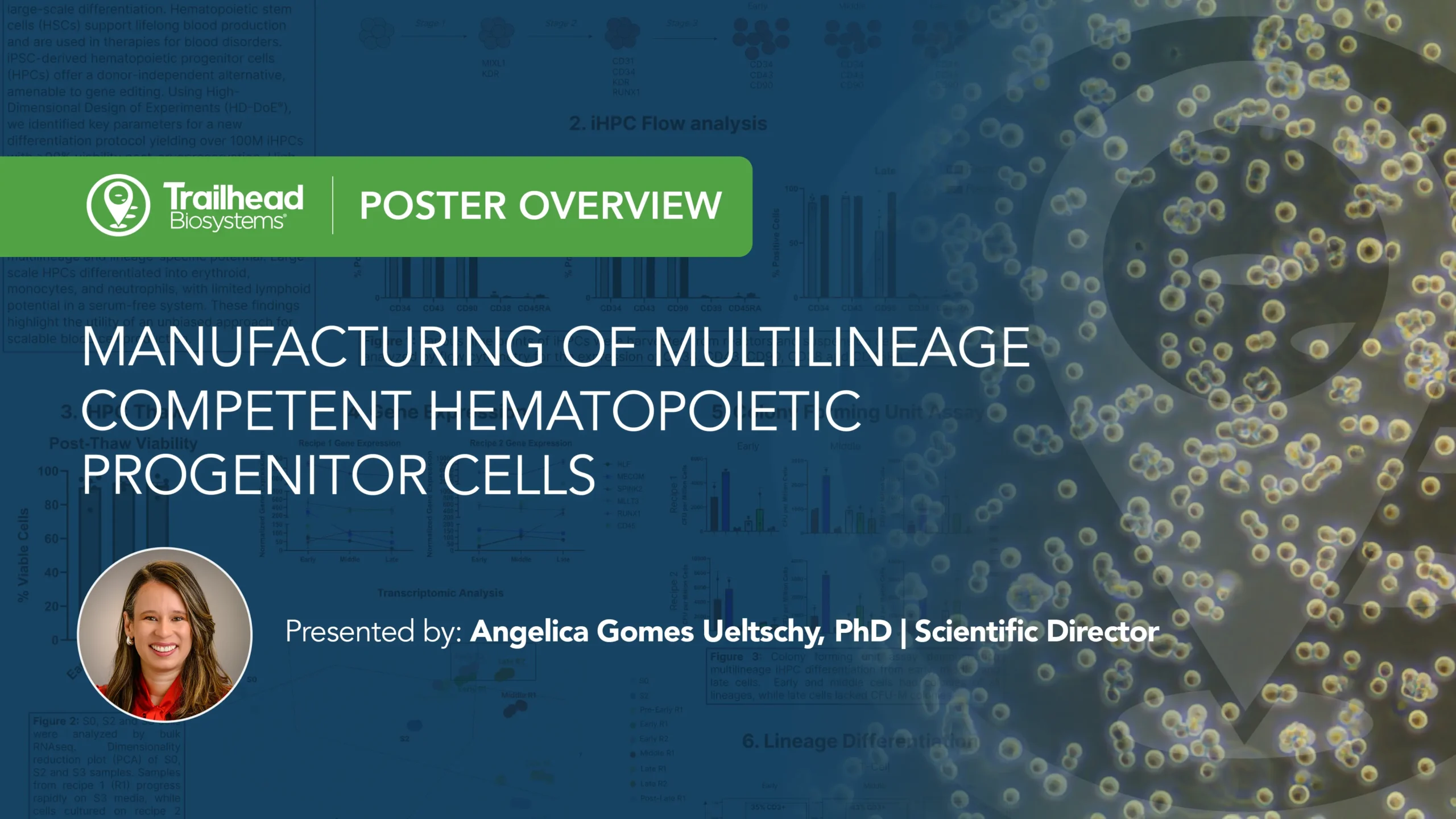Poster Title:
Manufacturing of Multilineage Competent Hematopoietic Progenitor Cells
Presenter:
Angelica Gomes Ueltschy, PhD
Scientific Director, Trailhead Biosystems
Abstract:
Pluripotent stem cells (PSCs) are promising for generating specialized cells for disease modeling, drug discovery, and cell therapy, but require large-scale differentiation. Hematopoietic stem cells (HSCs) support lifelong blood production and are used in therapies for blood disorders. iPSC-derived hematopoietic progenitor cells (HPCs) offer a donor-independent alternative, amenable to gene editing. Using High-Dimensional Design of Experiments (HD-DoE®), we identified key parameters for a new differentiation protocol yielding over 100M iHPCs with >90% viability post-cryopreservation. High CD34 expression and markers like HLF, MECOM, and SPINK2 were observed. Bulk RNAseq analysis revealed that the expression of HSC genes is dynamic and rapidly changes over time. In vitro colony-forming assays confirmed robust multilineage and lineage-specific potential. Large-scale HPCs differentiated into erythroid, monocytes, and neutrophils, with limited lymphoid potential in a serum-free system. These findings highlight the utility of an unbiased approach for scalable blood cell production.
Conclusion:
This study demonstrates the effective use of HD-DoE® to develop a scalable differentiation protocol for generating large numbers of iPSC-derived HPCs with high viability and CD34 expression. HSC gene expression profile and the robust multilineage potential observed in vitro validate the protocol’s efficiency. These results underscore the potential of this method for producing donor-independent HPCs for research applications and disease modeling, highlighting an unbiased strategy for scalable blood cell production
